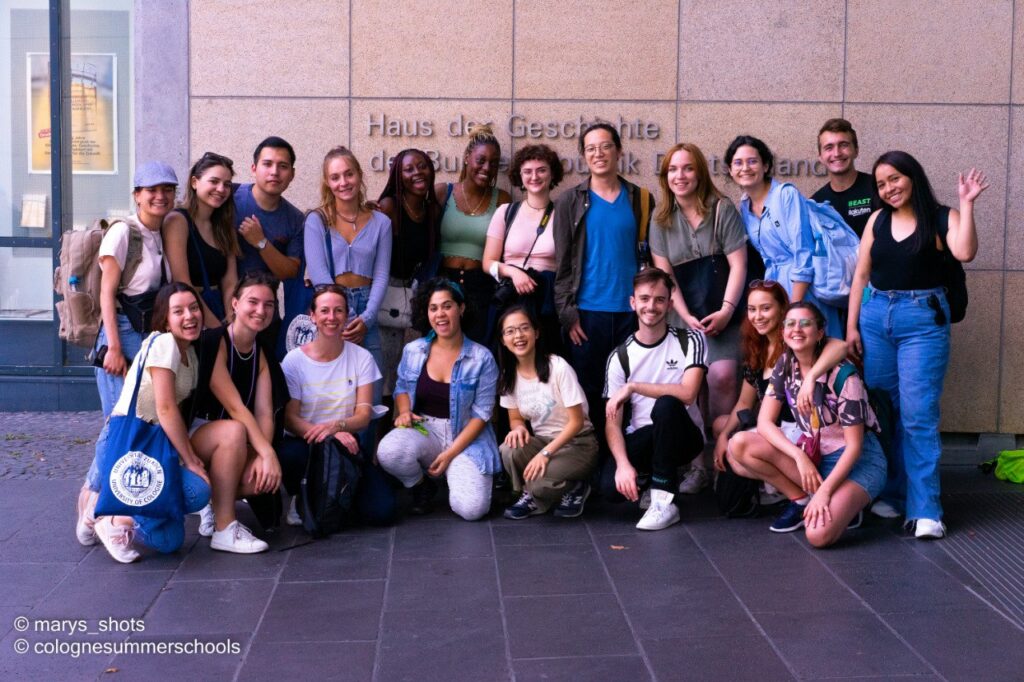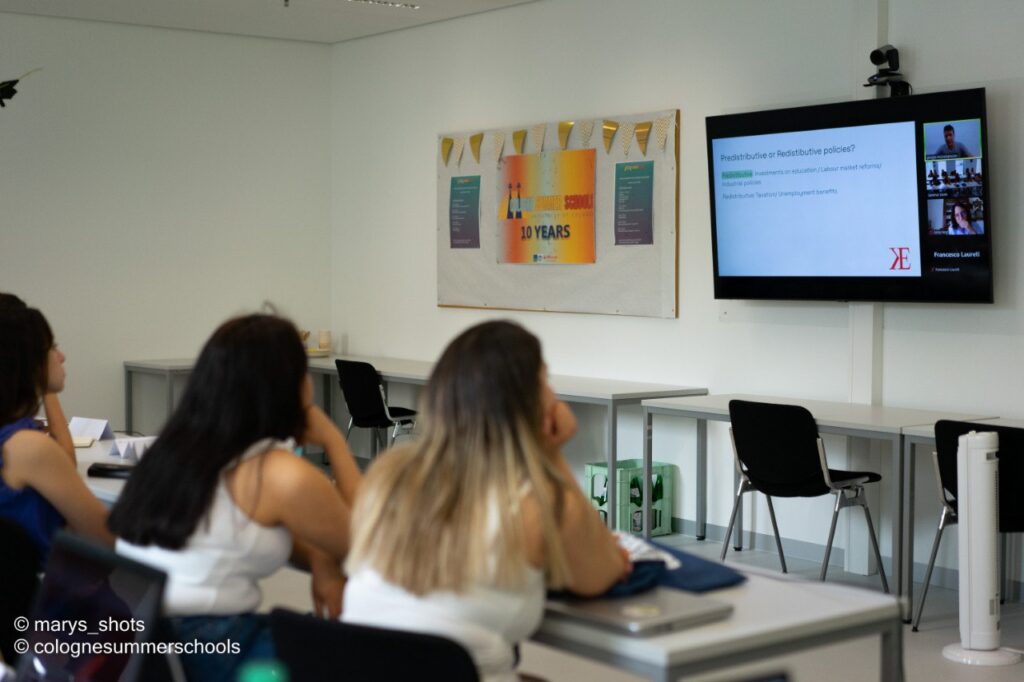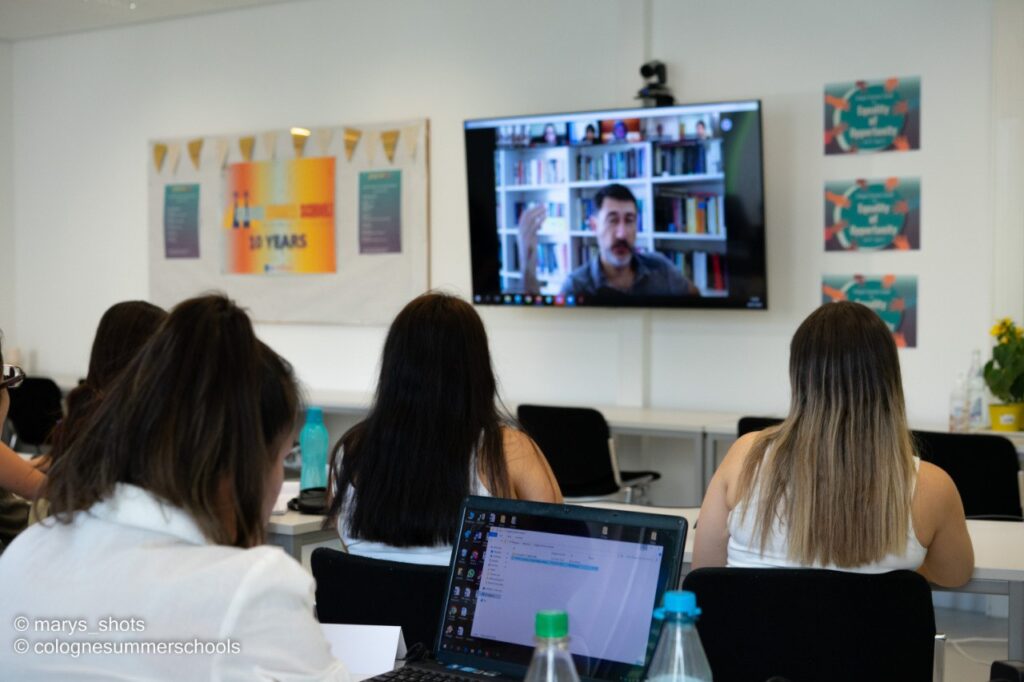"I laugh for you who cannot dream" sings Demetrios Stratos in Area's wonderful song, Joy and Revolution.
When Kritica Economica was launched into the jungle of the web, we were all in domestic confinement, wondering about the economic implications of the pandemic, the future of post-covid Europe, the rights of workers in factories. The debut in the public space was characterised by the live broadcasts that were so popular during the quarantine and the articles on a hand-made website.
Many of you saw a light of energy and enthusiasm in Kritica Economica's project and decided to support us. And you saw rightly. Today, thanks to your support you can see us even better: with the remarkable work of our graphic designers Marco Rollo and Martina Troya we have a new face, the new graphic identity of Kritica Economica on all our social media and on our website.
It is again thanks to your attention to our analysis that today we are guests on the blogs of the major national newspapers, we collaborate with Fondazione Feltrinelli, we are conference hosts, organisers of meetings and debates where the academic world meets the world of journalism and politics, and we work with schools. We boast a recent collaboration with the prestigious Young Scholars Initiative, which financed our 'Economy of the Real' project around Italy and our new website, created with the support of the Big Sur agency.
This is our joy.
We were recently invited to the Cologne Summer School 2022, organised by the University of Cologne team. This year's Summer School dealt with a topic very dear to us: equality of opportunity. Two weeks of lectures, debates, interdisciplinarity, contamination of cultures, more than 30 participants from all over the world: this is the Cologne Summer School, and to be invited to participate in this prestigious initiative is our small revolution.

The Cologne Summer School 2022
Kritica's members Anna Noci, Francesco Laureti and Giorgio Michalopoulos shared the lecture 'stage' with academics from all over the world and from different areas of the social sciences. In this sense, the Summer School was a laboratory of discussion and interaction among disciplines that allowed participants to get a well-rounded perspective on the study of inequality today, starting with some questions1THE QUESTIONS
- How does your discipline define inequality?
- What methods are used to identify and test inequality?
- What concepts of inequality are dominant in your discipline?
- What challenges do researchers in this field face?
- What measures should be taken to promote equality of opportunity?
- How do you define a balance between equality and fairness in your discipline?.
Kritica Economica’s lecture
We wanted to prepare a presentation that would not only bring our own original analysis of inequality and equality of opportunity, but also effectively convey what we like to call the different “souls” of Kritica Economica. We set up a questionnaire to find out how each participant perceived the urgency of the topic and whether they felt the discipline of economics dealt adequately with inequality.
According to all respondents, inequality is a pressing issue in their country, among the major predicaments identified were:
- gender issues,
- women's rights,
- access to education,
- poverty of younger generations,
- income distribution,
- unequal access to natural resources,
- concentration in land ownership,
- discriminatory practices towards indigenous, black and migrant populations,
- oligarchy in politics
These answers provided us with food for thought; with our bias as economists, we were able to interact with sensitivities and urgencies different from those in Europe.
We then asked whether economic discipline adequately responded to the problem of inequality. On this point, we came up against a sad truth: economics is perceived as an inadequate discipline in responding to the urgencies of the contemporary world. In fact, we received a string of firm "no". One response that made us reflect deeply on the role of the academic world today was the following:
In my view, the most marginalised people are excluded from this discussion.
We find it interesting to report in full in the following pop-up2- The system is set up like this
- Lack of education, intolerance, lack of representation, stereotypes.
- Those in power and the wealthiest continuously create opportunities to maintain and grow their power and wealth
- I think the biggest cause is the goal of relentless economic growth, especially when we talk about real estate. There is a common approach to believe that land should generate income rather than allow people to live on it. This has to change radically if we are to combat inequality
- The wealthy generally have power and replicate inequalities through social systems
- Capitalism and patriarchal values
- Patriarchy. The power and influence of the wealthy who own the land, the means of production and information. Disorganised systems and corruption that do not allow a way out of inequalities, racism and xenophobia.
- Lack of public policies
- Lack of empathy to adopt good public policies
- Political ideologies and economic reasons
- Legacy of imperialism and colonialism, the answers to the question: "What do you think are the causes of inequality?".
Why are these answers interesting? Reading them one can already perceive the smells of different countries of the world, with their fumes thick with injustice but also with hope.
Structure of our lecture
We came to this Summer School feeling the urgency to show that the discipline of economics is not a flag, but has different analyses, methodologies, and above all, different interpretations of society. So we divided our lecture into three parts:
- Empirical confutations to myths about inequality
- Inequality and income distribution in the history of economic thought
- Centre-periphery inequality. An interdisciplinary approach

It’s the empirical evidence baby!
When dealing with the problem of inequality on the level of public policies, one can think of pre-distributive policies aiming at investments in education, labour market reforms or industrial policies. On the other hand, one can discuss re-distributive policies with the instruments of taxation, unemployment benefits, etc.
We have focused on the interesting developments in the literature on two policies (a 'pre' and a 're' distributive one) that are often the subject of lively discussions, respectively the legal minimum wage and, on wealth taxation, the famous trickle down theory.
Following a description of the legal minimum wage instrument and its main features aimed at counteracting income inequality, we selected a first neoclassical myth about this instrument:
The minimum wage increases the unemployment rate and disincentives productivity.
We showed how several politicians argue without scientific evidence for this position, but the cold facts coming from empirical evidence, debunk the neoclassical criticism of the statutory minimum wage. We have shown, among the most recent results, that of Dustmann et al. ('Reallocation effects of the minimum wage', 2021), which shows that since 2015 (when the statutory minimum wage was introduced in Germany) both productivity and employment have increased. Moreover, the measure has been an effective instrument for reducing income inequality, as wages have risen for wage brackets close to the minimum wage, while higher wages have not been adjusted. For completeness, the link to read the article is included here.
A second, exquisitely mainstream myth is that the wealth of the rich should be untouched by taxation, since in this way wealth should - in an unfortunate metaphor - 'trickle down' to the lower and middle classes. In a world where, on average, 50% of the population owns less than 2% of the total wealth (source: World Inequality Database) and where the richest 1% comes to own 90% of the total wealth in continents such as Latin America, to advocate such a position seems nostalgic for the 19th century. Back in 2015, the International Monetary Fund, not the most progressive of international institutions, showed:
If the income share of the top 20 per cent (the rich) increases, GDP growth actually declines over the medium term, suggesting that benefits do not trickle downwards.
During the Summer School we wanted to present a case study by Thomas Piketty, B. Garbinti and J. Goubille-Lebret ('Accounting for wealth-inequality dynamics: methods, estimates and simulations for France'). In the article, the authors show the dynamics of wealth concentration in France from the 1970s to 2014, but the most interesting result - which definitively refutes the "trickle-down" madness - is the composition of assets for each wealth decile and then the decomposition of investment assets for the richest 1% of the population.
While for the poorest segments of the population the only form of asset is bank deposits, in the middle segment real estate investment takes over in a dominant form. Reaching the highest deciles, real estate investment takes an increasingly smaller share while the dominant investment becomes that in the financial markets, while the so-called 'business assets' in comparison have no comparable significance.
Already one wonders how wealth should 'trickle down' from the financial markets. Going deeper, we have seen the breakdown of the wealth of the richest 1% of the population. Since 2000, a huge gap has opened up between financial and commercial investments (i.e. in the real economy). The latter, in fact, have increasingly decreased in share with respect to both financial investments and real estate investments. The trend is therefore towards an increase in rents, whether real estate or financial. To date, inadequate policies and growing inequalities have trickled down.
What are the theoretical justifications for these myths? Anna Noci explained this with a real journey through the history of economic thought that you can read by clicking here.
But this is not the end of the story. As Cornelius Castoriadis wrote:
After arriving at a certain point, economics must be something else, and more, than economics - otherwise it becomes an absurdity 3Quotation taken from “La filosofia dell’economia”, in “Contro l’economia”, Luiss University Press, 2022.
In our unconventional journey into inequality, we wanted to adopt a multidisciplinary perspective, explored in detail by Francesco Laureti here.
Till next time!
We crossed the national border with the aim of showing the other face of economics, that of a complex social science composed of many voices. We had the honour and pleasure of sharing the stage of the summer school with renowed professors such as Michele Raitano, professor of economic policy at Rome's Sapienza University and member of the working group on interventions and measures to combat in-work poverty in Italy (whose recent report of November 2021 is linked here), who gave a four-hour lecture on intergenerational inequalities with an interdisciplinary approach that was much appreciated by the summer school participants.

We asked Arina Deriugina, sociology student at Bielefeld University, for a comment on the presentation and the summer school experience, this is what she told us:
Thanks to your presentation it was possible for us participants to have a detailed overview on economic theories and dive a bit more into the history to get an alternative view on the topics of unemployment and inequalities happening there. However, the most important for me personally was that it started a discussion between the group and we got a chance to share situations in our countries and talk about possible solutions for it. I have a background in economic sociology, specifically in labour market, and I also work with refugees in Germany which gives me a closer view on the problems happening in the system and thanks to this lecture by Kritica Economica team I got an idea of my possible Master research topic.